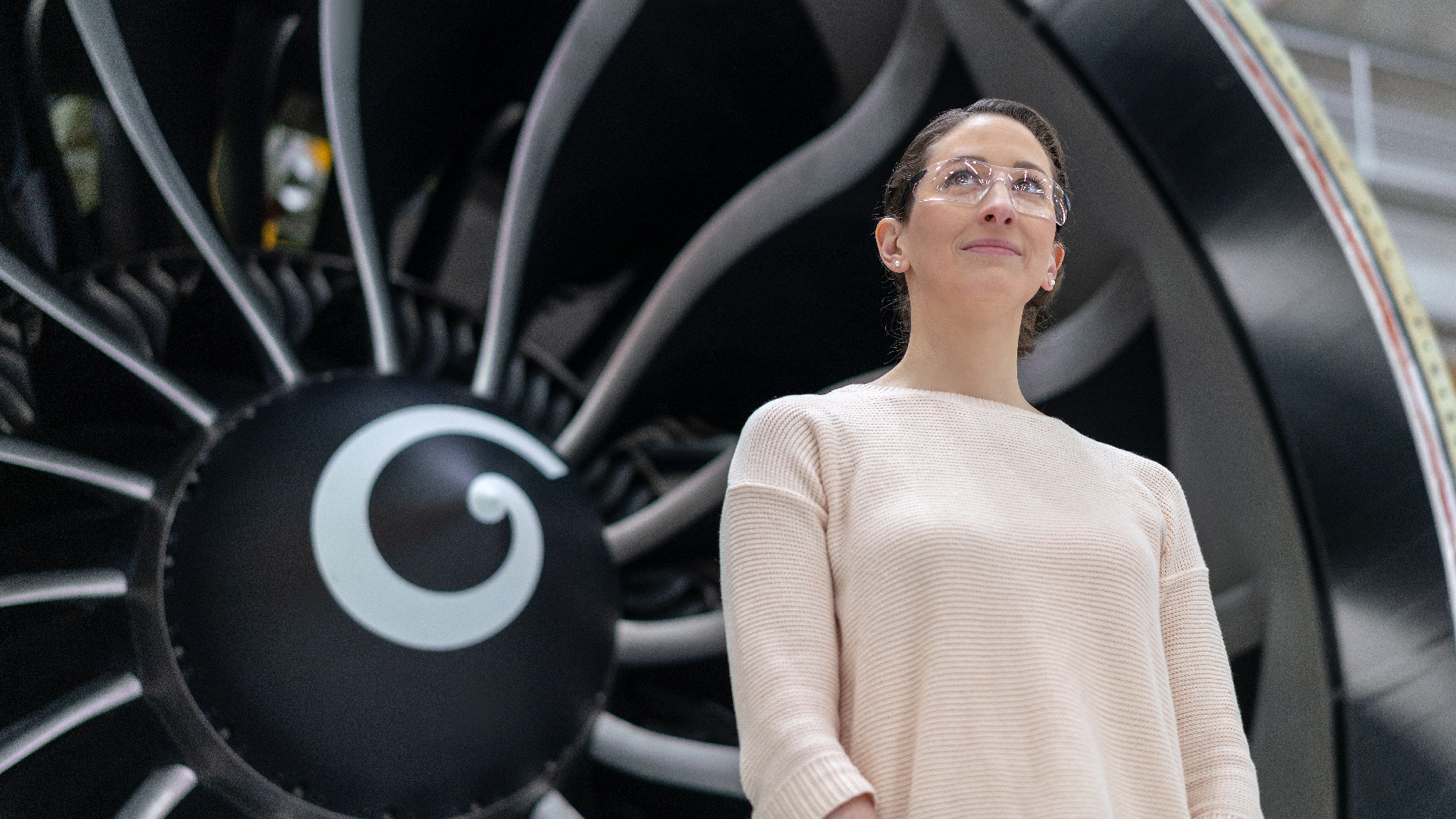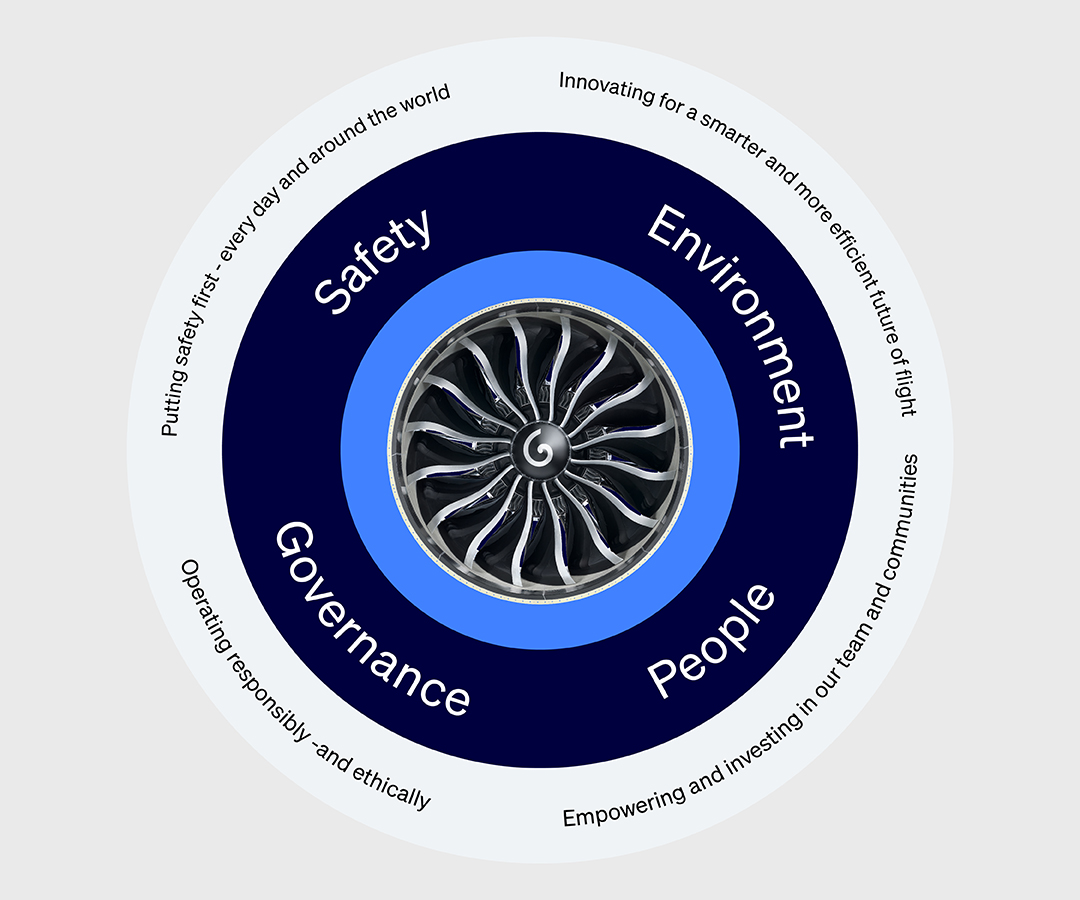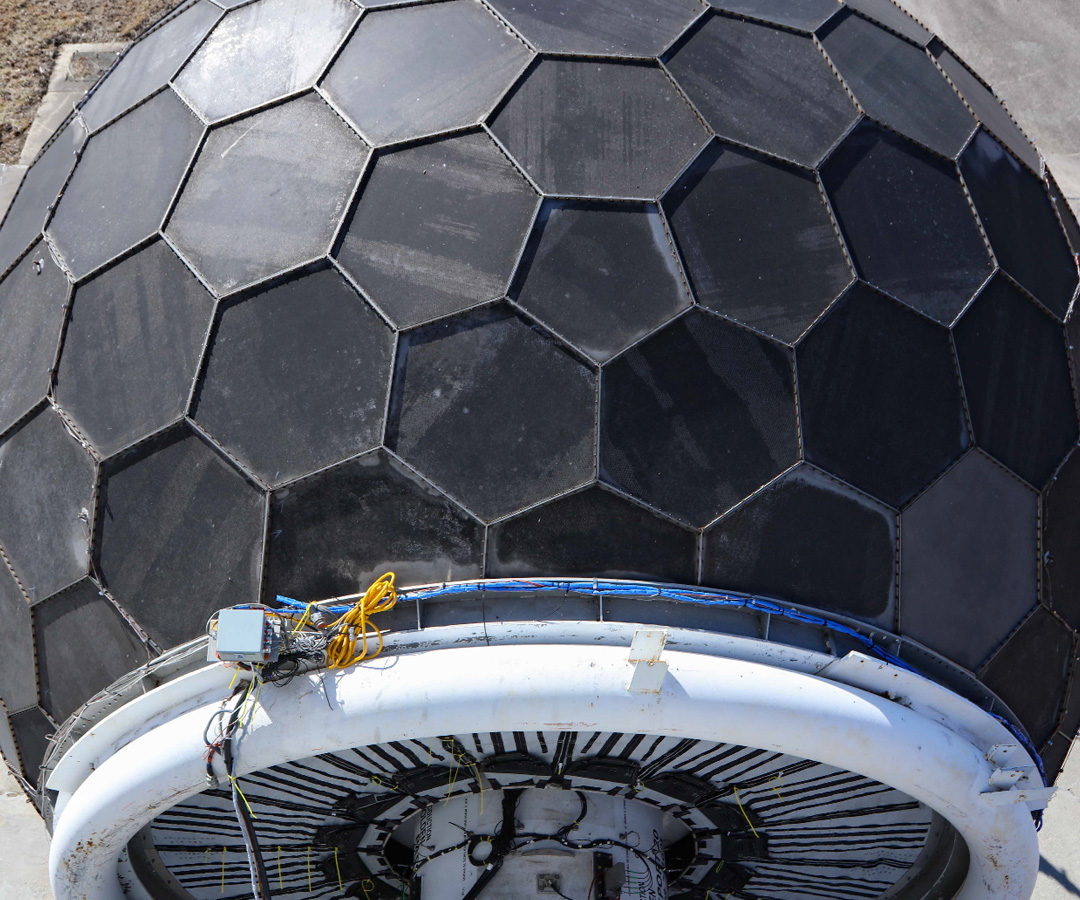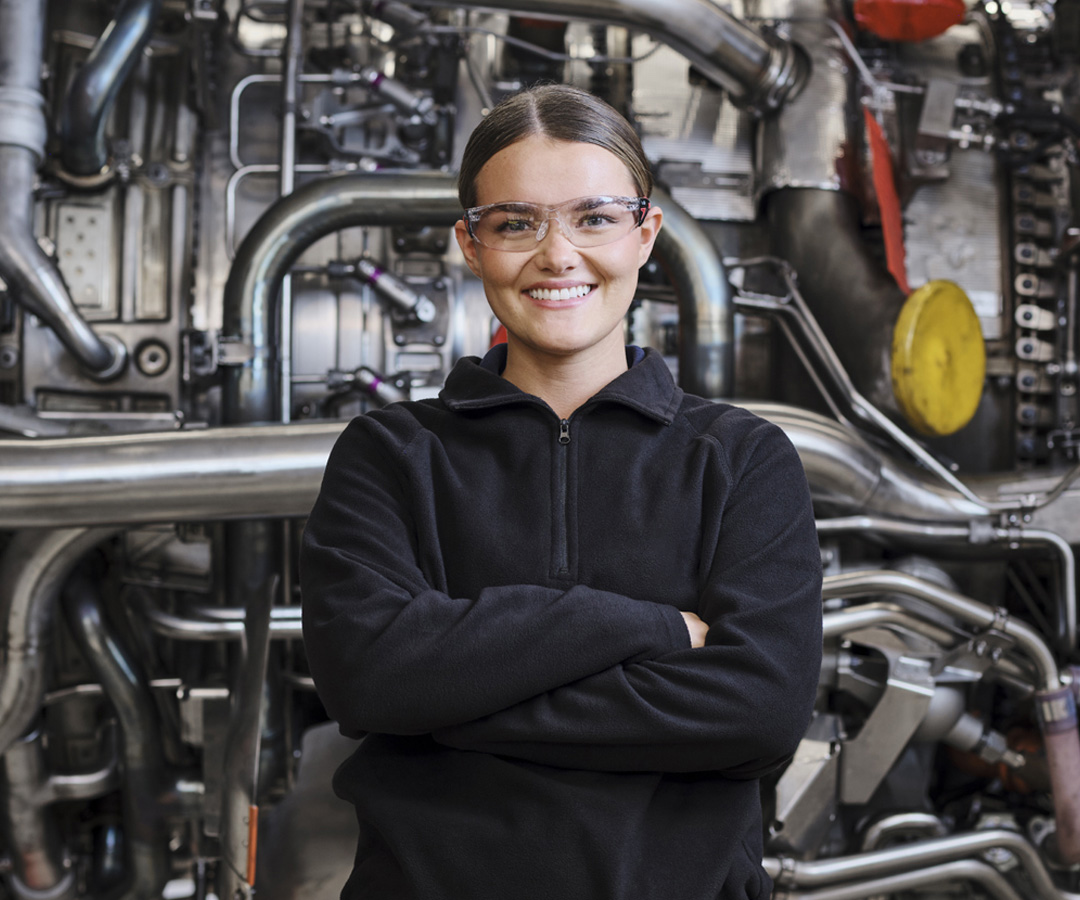Sustainability in Aviation

Moving Innovation Forward
For a safer, more efficient aviation industry
“The future of flight is being shaped today, and GE Aerospace is proud to be at the forefront.”
H. Lawrence Culp Jr.
GE Aerospace CEO
H. Lawrence Culp Jr.
GE Aerospace CEO

Our sustainability framework
Our sustainability approach is aligned with the company’s purpose to invent the future of flight, lift people up and bring them home safely.
Additional sustainability-related policies and reports are available in our Sustainability Reports Hub.
Additional sustainability-related policies and reports are available in our Sustainability Reports Hub.

Safety: Putting safety first
We put safety first and look to continuously improve our products, processes, and operations.
As safe as aviation has become, we are never done.

Environment: Innovating for a smarter, more efficient future of flight
We build on the spirit of invention that has fueled us for over a century to help achieve net zero carbon for Scope 1 and 2 operational emissions by 2030 and propel the industry’s net zero by 2050 ambition.
Technology innovation
Optimizing operations
Technology innovation
Optimizing operations

People: Empowering and investing in our team and communities
We are passionate about lifting people up in the communities where we live and work.
Philanthropy
Careers
Philanthropy
Careers

Governance: Operating responsibly and ethically
We create accountability, operate ethically and balance the needs of our stakeholders while supporting risk management and long-term value.

Pictured: Rendering of GE Aerospace’s hybrid electric testbed. Through NASA’s Electrified Powertrain Flight Demonstration (EPFD) project, GE Aerospace is developing a hybrid electric propulsion system for flight tests in the 2020s.
By the numbers
At GE Aerospace, we’re taking an across-the-board approach to support the future of flight, developing more efficient engine technologies compatible with alternative fuels and collaborating across the industry.
40
%Better fuel efficiency
GE Aerospace's commercial engines today are designed to be 40% more fuel efficient compared to engines made in the 1970s.
$
2.7
Bin Research and Development
Including customer and partner funding, we spent approximately $2.7 billion in R&D in 2024, driving breakthroughs in Open Fan engine architecture, hybrid electric propulsion, hypersonics, small engines for unmanned applications, and next-generation adaptive cycle engines.
20
%Target CO2 reduction
With next-generation technologies, our goal is to further improve fuel efficiency and reduce CO2 emissions by 20% compared to today's most efficient commercial engines.
100
%Sustainable Aviation Fuel (SAF) testing
All GE Aerospace engines can operate on approved SAF blends today and GE Aerospace engines have been successfully tested with 100% SAF that doesn’t require blending with conventional jet fuel.

Aerospace Carbon Solutions
Exploring beyond-the-engine breakthroughs, including technology-enabled Sustainable Aviation Fuel (SAF) and CO2 removal towards the industry’s decarbonization goals. Aerospace Carbon Solutions supports startups and other efforts at the forefront of these spaces and is mobilizing GE Aerospace’s research team to help advance and scale new fuel technologies.

Collaborations
Meeting the aviation industry's goal of net zero carbon emissions by 2050 requires collaboration and innovation. GE Aerospace is doing both.